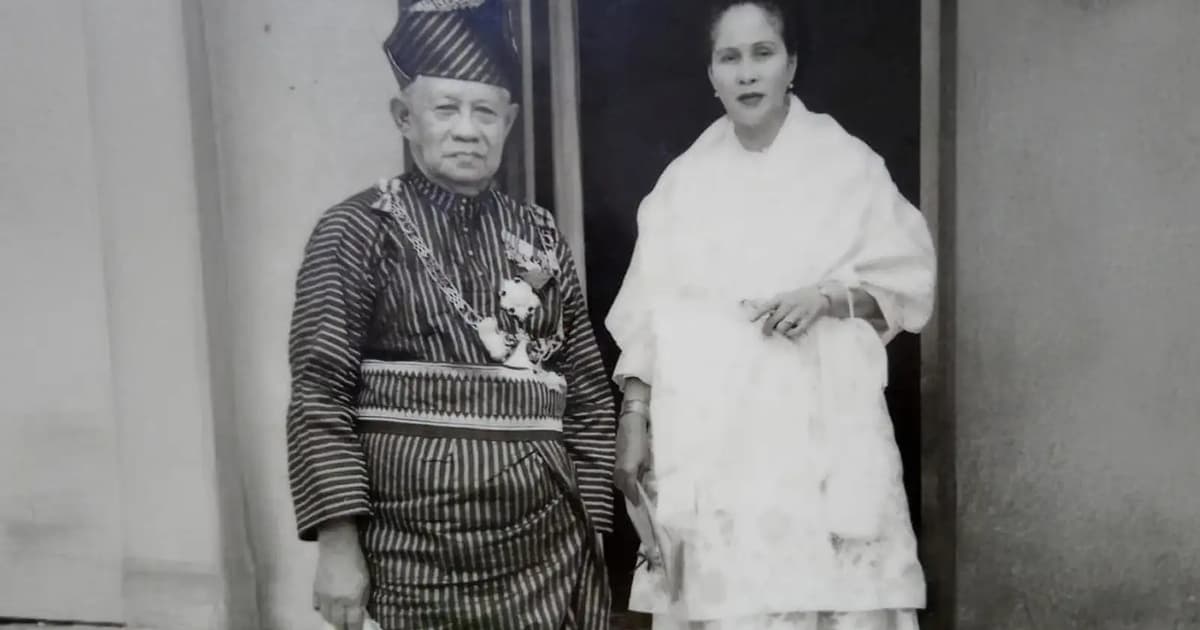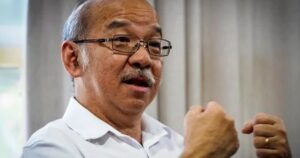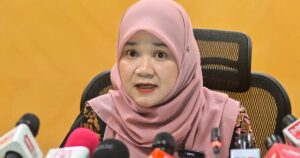
From Kamariah Shakirin Mustafa
Abdul Rahman Yassin remains a largely unfamiliar name to many today, particularly among the younger generation, despite his significance during the twilight of colonial Malaya and the early years of independence.
Even less is known about his role as a family man.
Few realise that Taman Tun Dr Ismail, named after former deputy prime minister Dr Ismail Abdul Rahman, and its long main road and parallel lanes bearing the name Dato Sulaiman, commemorate two of his children.
Long before cries of “Merdeka” rang out across towns and villages on that radiant morning of Aug 31, 1957, the seeds of resistance were already taking root in a quiet riverside town in Muar.
The year was 1890, and the place, Parit Bakar. A baby’s cry pierced the air. Abdul Rahman — the sole surviving son of proud father Yassin bin Orang Kaya Ahad — was born.
Drawn from a long aristocratic line of Bugis descent, Yassin was a senior civil servant serving the Johore government — an “administocrat” (a term coined by Chandra Muzaffar).
As the sole surviving son, Abdul Rahman was instilled from an early age with a deep sense of “noblesse oblige” — the belief that duty and honour must serve the public good — a life principle needed now more than ever, but increasingly absent from modern politics.
Abdul Rahman and his wife Zaharah had nine children: four sons and five daughters.
They also welcomed five adopted daughters from Chinese families, each treated with no less favour than their own daughters. This same sense of duty and responsibility would later live on in their children.
Abdul Rahman’s grandchildren described him as a man of few words who rarely showed any outward sign of affection. It was well known amongst family members that even his children had to write letters to communicate with him.
He held a deep belief in the value of education. All his children were sent to schools with English as the medium of instruction.
Every one of his sons graduated from prestigious universities abroad.
Sulaiman, the eldest, graduated in law from Cambridge; Ismail, the second son, in medicine from Melbourne. Abdullah, the third son, was admitted to the Bar at Middle Temple. Yassin, the youngest son, graduated in commerce from the University of Melbourne in Australia.
Of his five daughters, Zubaidah, the youngest, graduated with a degree in medicine. His other daughters also completed their education, and were given land — a reflection of his deep care and concern for their ultimate welfare.
It is clear from interviews, readings and archival research that Abdul Rahman was a man shaped by merit, excellence and discipline despite the privilege that he could have demanded and commanded given his aristocratic background.
After completing his studies, he joined the Johor civil service in 1909. His rise was rapid: senior positions in the state administration by the 1920s; a member of the Johore State Council by 1932; State Treasurer in 1936; and State Commissioner of Muar in 1941.
When World War II came to its end, the British attempted to impose the Malayan Union on Malaya.
Abdul Rahman saw the negative repercussions it would have on Malaya, and he, with the wrath of a nationalist, mobilised the support of six other Malay leaders — including Suleiman, his son, and Dr. Awang, his son-in-law — to vehemently oppose it.
The group, with him as leader, became known as “Orang Tujuh Muar” (The Muar Seven). As a result of the group’s actions, Johor’s sovereignty was safeguarded.
That, however, came with a price. All seven men were suspended from service for six months.
Indeed, it was the Orang Tujuh Muar’s opposition to the Malayan Union that catalysed the formation of Umno and, from there, the eventual fight for independence.
Upon Malaya’s independence in 1957, Abdul Rahman became the first president of the Dewan Negara, a position he held until 1968.
This role was far more than ceremonial. As its first head, he helped shape parliamentary practice and procedure, ensuring that the upper house functioned effectively within the ambit of parliamentary democracy.
Beyond politics, Abdul Rahman had a part in the development of the country’s banking sector. He was the first chairman of the Malayan Banking Corporation (Malayan Banking Berhad today, or Maybank), laying the foundation for the culture and practices visible today — tradition and modernity: a synergy.
Abdul Rahman embodied one carrying out his noblesse oblige to the fullest extent, working to bring the nation to greater heights sans self- and familial interest.
His story is not just that of one man, but also of the town he was born in. Indeed, Muar served as the cradle of the country’s early leadership.
The story of the opposition to Malayan Union and the eventual formation of Umno cannot not be told without knowing the role played by Abdul Rahman and the Orang Tujuh Muar.
Neither a firebrand nor an orator, he was nonetheless a force — a loyal civil servant, a thoughtful strategist, and an unwavering defender of Malay sovereignty.
In short, he was a “satyagraha” — one who holds firmly to the truth.
In tone and tenor, Abdul Rahman echoed the archetype of the Malay hero — evoking the spirit of Dato’ Maharaja Lela and other figures etched into the annals of Malay nationalism.
That much is known of Abdul Rahman Yassin. The son of Muar whose steady hand behind the curtain helped build the political edifice of a nation, and whose legacy lives, not in loud declarations, but in the quiet courage of principled resistance.
Kamariah Shakirin Mustafa is the granddaughter of Malaysia’s second deputy prime minister, Dr Ismail Abdul Rahman.
The views expressed are those of the writer and do not necessarily reflect those of FMT.






